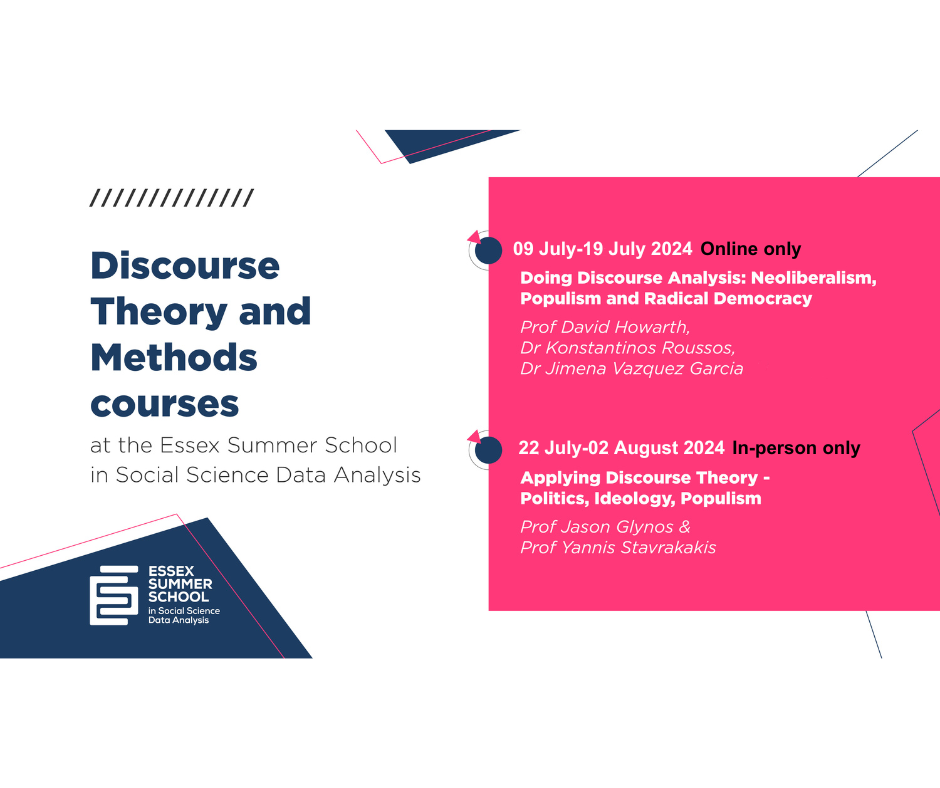(Online) University of Essex
Wivenhoe Park
Colchester
CO12UT
United Kingdom

Prof. David Howarth, Dr. Konstantinos Roussos, Dr. Jimena Vazquez Garcia, University of Essex
2 week course / 35 hours (Please note: This course will be taught online only. In person study is not available for this course)
This course provides the conceptual and methodological means to use discourse analysis in the conduct of empirical and theoretical research, where the aims of the approach are to understand, characterize, explain, and criticize problematized social phenomena. It serves as a forum to discuss research strategies that are consonant with the field of poststructuralist discourse theory, and outlines an approach that can be employed in the analysis of concrete discourses.
More precisely, the course puts forward an approach to critical explanation, which comprises five basic elements: problematization; retroduction; logics; articulation; critique and normative evaluation. Building on Michel Foucault’s method of problematization, Laclau and Mouffe’s post-Marxist logics of discourse analysis and various psychoanalytic ideas drawn from Freud, Lacan and Žižek we seek to investigate the meanings and theoretical role of a wide range of themes and concepts such as: critique, ideology, hegemony, antagonism, radical democracy, populism, commons and prefigurative politics, neoliberalism, health and social care, subjectivity and the digital.
Such concepts and themes are considered from the point of view of methodology and research strategy, examining the philosophical underpinnings of a poststructuralist approach to social and political analysis and grappling with their operationalisation through a range of empirical cases to illustrate broad methodological and theoretical points.